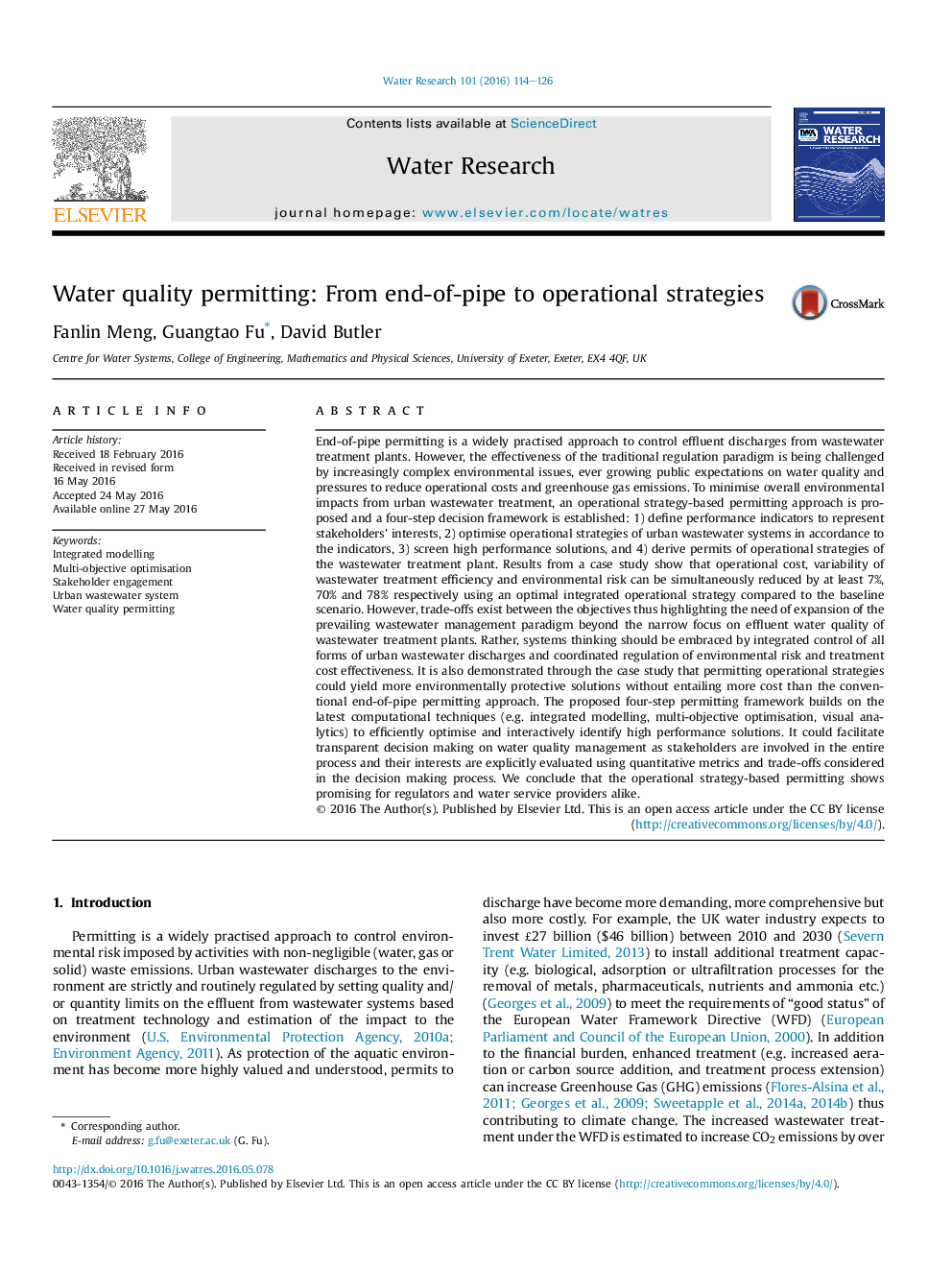| کد مقاله | کد نشریه | سال انتشار | مقاله انگلیسی | نسخه تمام متن |
|---|---|---|---|---|
| 6364811 | 1623067 | 2016 | 13 صفحه PDF | دانلود رایگان |
- A new permitting format based on operational settings is proposed.
- A decision analysis framework is proposed to engage multiple stakeholders' interests.
- The new method compared with traditional permitting approach and benefits demonstrated.
- Trade-offs revealed between energy cost, treatment stability and environmental risk.
- Necessity demonstrated for more systematic and coordinated water quality management.
End-of-pipe permitting is a widely practised approach to control effluent discharges from wastewater treatment plants. However, the effectiveness of the traditional regulation paradigm is being challenged by increasingly complex environmental issues, ever growing public expectations on water quality and pressures to reduce operational costs and greenhouse gas emissions. To minimise overall environmental impacts from urban wastewater treatment, an operational strategy-based permitting approach is proposed and a four-step decision framework is established: 1) define performance indicators to represent stakeholders' interests, 2) optimise operational strategies of urban wastewater systems in accordance to the indicators, 3) screen high performance solutions, and 4) derive permits of operational strategies of the wastewater treatment plant. Results from a case study show that operational cost, variability of wastewater treatment efficiency and environmental risk can be simultaneously reduced by at least 7%, 70% and 78% respectively using an optimal integrated operational strategy compared to the baseline scenario. However, trade-offs exist between the objectives thus highlighting the need of expansion of the prevailing wastewater management paradigm beyond the narrow focus on effluent water quality of wastewater treatment plants. Rather, systems thinking should be embraced by integrated control of all forms of urban wastewater discharges and coordinated regulation of environmental risk and treatment cost effectiveness. It is also demonstrated through the case study that permitting operational strategies could yield more environmentally protective solutions without entailing more cost than the conventional end-of-pipe permitting approach. The proposed four-step permitting framework builds on the latest computational techniques (e.g. integrated modelling, multi-objective optimisation, visual analytics) to efficiently optimise and interactively identify high performance solutions. It could facilitate transparent decision making on water quality management as stakeholders are involved in the entire process and their interests are explicitly evaluated using quantitative metrics and trade-offs considered in the decision making process. We conclude that the operational strategy-based permitting shows promising for regulators and water service providers alike.
271
Journal: Water Research - Volume 101, 15 September 2016, Pages 114-126
